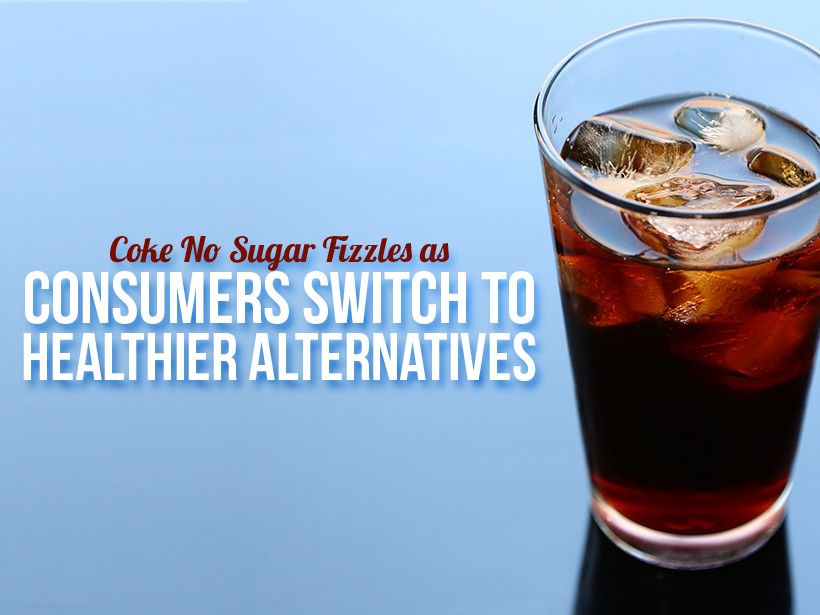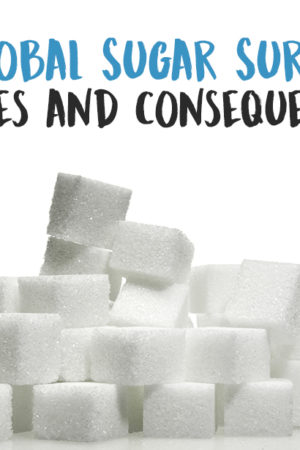Under strict orders from their corporate offices in the United States, retailers across the globe are begrudgingly phasing out Coke Zero (Coca-Cola's hallmark zero-calorie soft drink that mimics the taste of classic Coke) in favor of Coke No Sugar. However, the carbonated giant is facing a unique duet of problems rolling out their new product, which was assumed to be a soft and simple transition. A world in love with the taste of Coke Zero is proving to be more resistant to change than originally anticipated, causing problems for the soft drink conglomerate. Even more troubling is the market's massive move towards healthier options, which has shown consumers ditching the sugary drinks altogether in favor of more conscious options.
A worldwide love affair
There's no way to deny it– consumers around the world are in love with Coke Zero. The Coca-Cola company's insistence on replacing Coke Zero with new Coke No Sugar is being met with resistance from retailers, who claim that they are having trouble getting rid of their excess stock of the new beverage. Consumers seem to be uninterested in Coke No Sugar, regardless of the fact that the drink's branding is almost identical to Coke Zero.
The problems began in the Australian market, where soft drink competition is almost as fierce as it is in the United States. Grocery giant Woolworths even initially refused to stock the beverage, claiming that they already had more than enough soft drinks on their shelves. Even after Woolworths relented to corporate demands in December, supermarkets like Aldi and Coles still stock Coke Zero in much larger margins than the new product, much to the chagrin of Coke corporate.
A fizzle of a launch
Coke No Sugar is far from the first time that Coca-Cola has introduced a flop of a product to the market. Anyone who lived through the 1980's will remember the disaster that was the introduction of New Coke, which was supposed to replace Classic Coke. However, even in recent years, Coca-Cola has made a number of missteps, seeming to push products that are at odds with the tastes of consumers. One of their most recent launches, Coke Life, was met with a very unsuccessful launch, which may contribute to retailers skepticism regarding Coke No Sugar.
New international competition
Competition from other soft drinks isn't the only troubles that Coca-Cola now faces on the market. As the tastes of consumers change, more and more shoppers are attempting to cut added sugar from their diets as they become more educated on the misinformation and manipulation that the sugar industry has become infamous for. Healthier options like flavored seltzer water, bottled water, and fruit-infused zero-calorie beverages are slowly taking over the market and cutting into the long-held grip that soft drinks have historically had on the market. With shelf space at a premium, retailers of sugary colas are feeling the pressure to introduce new options that limit sugar while still retaining the rich flavors that consumers look for in a cola.
Will Coke No Sugar eventually take over Coke Zero? Will Coca-Cola ever be able to regain their hold on the market? Only time will tell. For now, healthier beverages are here to stay.
NUTRITIONAL DISCLAIMER
The content on this website should not be taken as medical advice and you should ALWAYS consult with your doctor before starting any diet or exercise program. We provide nutritional data for our recipes as a courtesy to our readers. We use Total Keto Diet app software to calculate the nutrition and we remove fiber and sugar alcohols, like erythritol, from the total carbohydrate count to get to the net carb count, as they do not affect your blood glucose levels. You should independently calculate nutritional information on your own and not rely on our data. The website or content herein is not intended to cure, prevent, diagnose or treat any disease. This website shall not be liable for adverse reactions or any other outcome resulting from the use of recipes or recommendations on the Website or actions you take as a result. Any action you take is strictly at your own risk.
- Keto Drives Increased Calorie Burn - July 11, 2019
- New High-Protein, Low-Sugar Greek Yogurt Hits Market - April 1, 2019
- Can Going Low-Carb Fight Back Fat? - December 4, 2018































